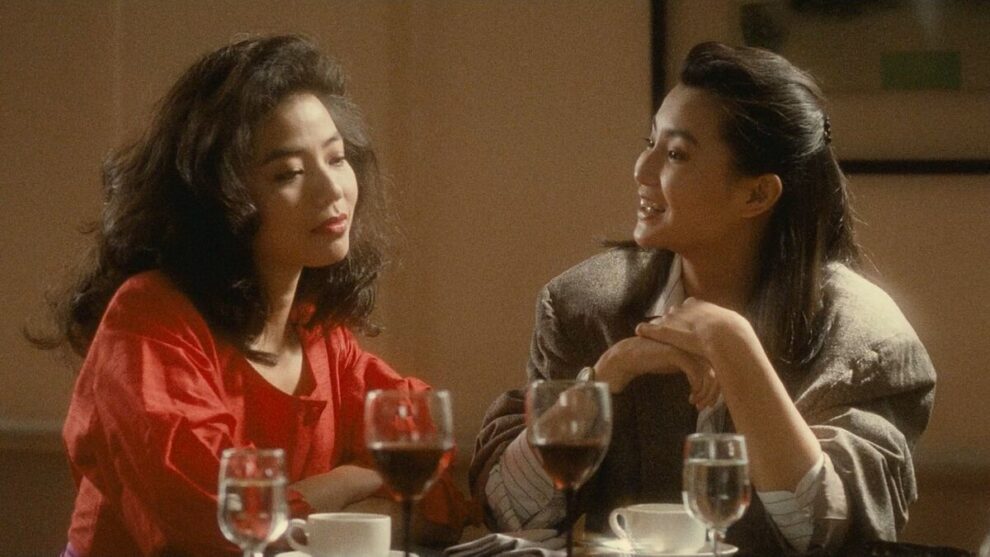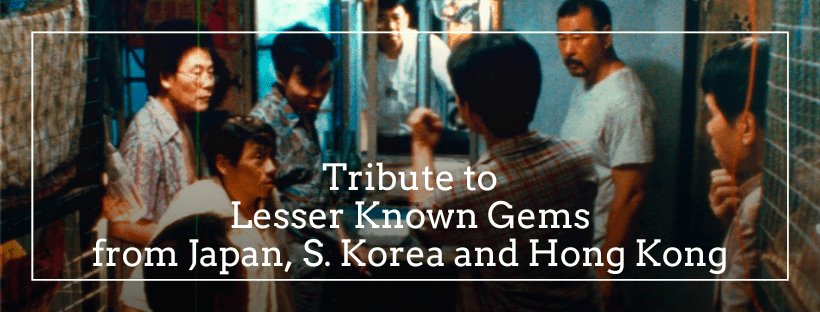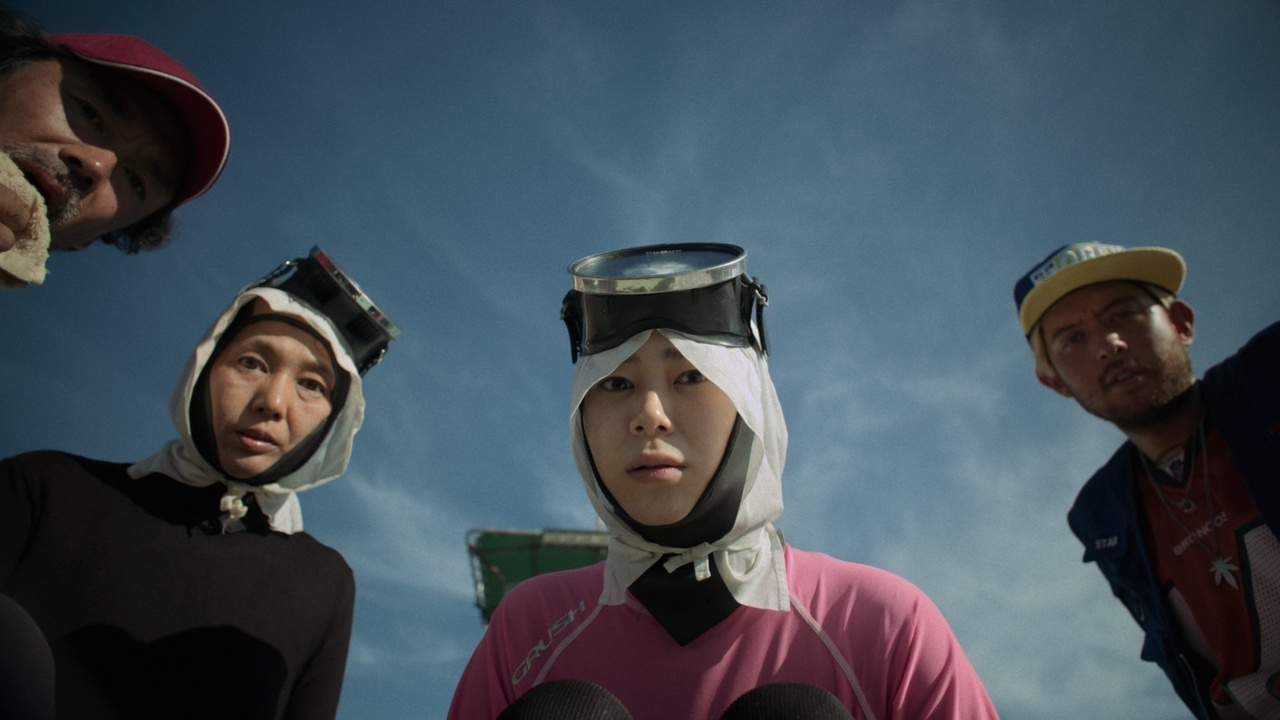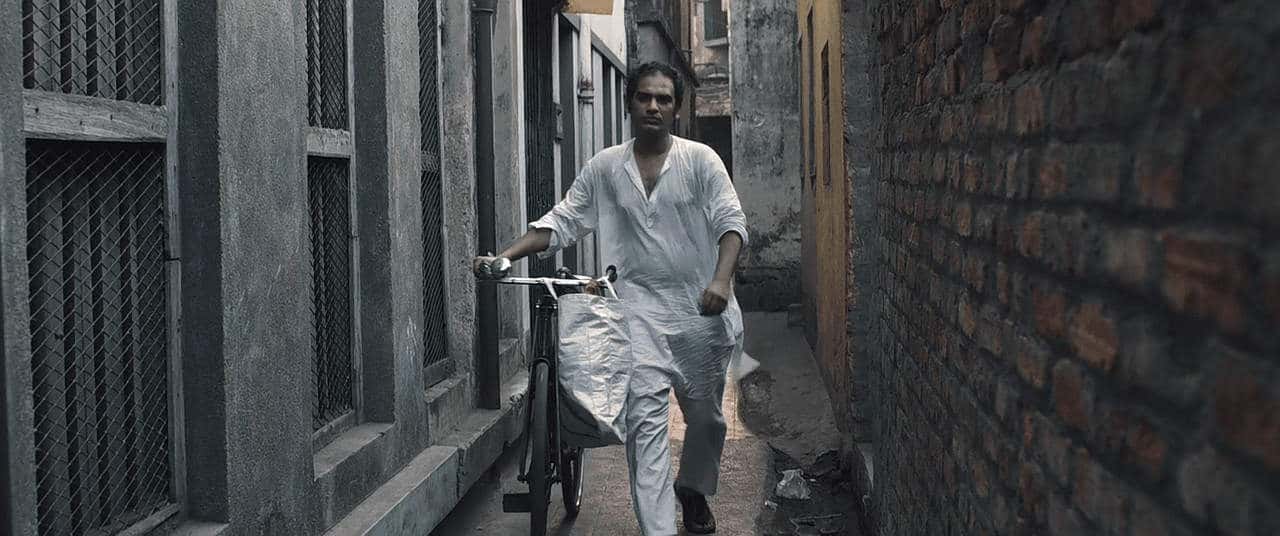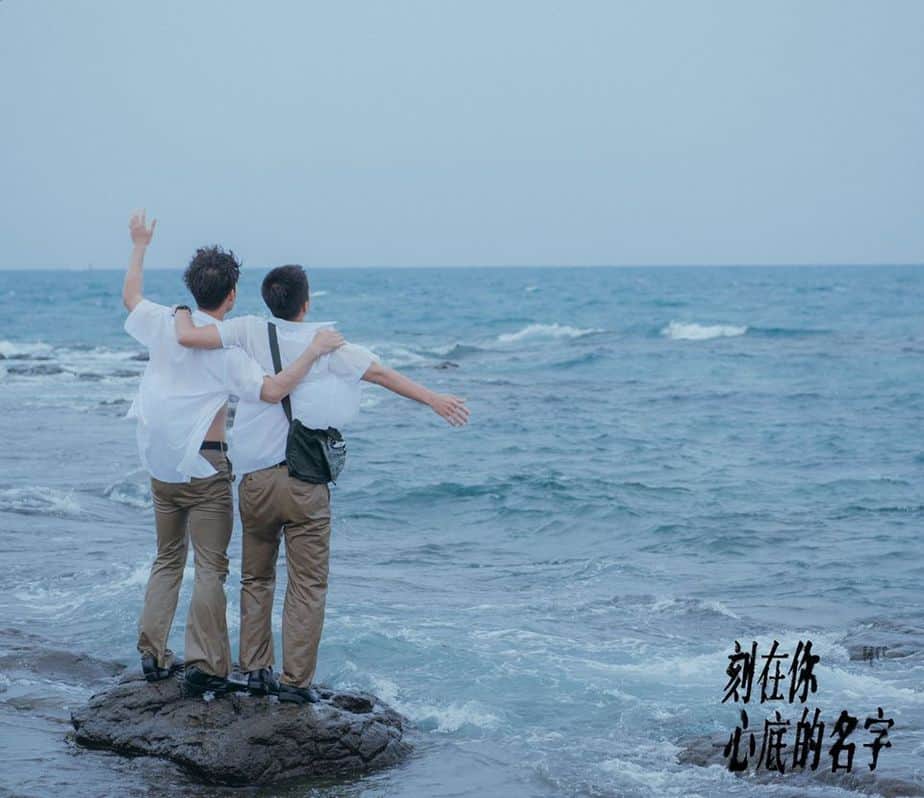Set against the stock market crash and the Sino-British Joint Declaration in the 80's, “Last Romance” is an amalgam of a film, where, actually, the titular aspect is probably the least central one.
So-so and Nancy meet at high school when the former arrives there, and immediately become best friends, with the latter's family essentially functioning as one for the newcomer also, who is living in Hong Kong with her aunt and cousin, who lusts for her in the most annoying fashion. Eventually, they meet a half-Japanese classmate, Jiang-Jia, who both like immediately, to the point that they decide to take turns of who “stumbles” upon him after school. In the end, they manage to both go on a date with him in a theme park, but also manage to lose his phone number as the two girls leave in a taxi. Years pass, and So-so and Nancy take completely different paths in life, but their feelings for Jiang-jia never actually cease. Expectedly, he appears once more in their life.
Check also this interview
The rather unusual aspect of the film and Yonfan's writing is that the romance aspect is actually the weakest in the movie, with it being characterized by a convenient naivety that points towards a light romantic comedy, in contrast to the rest of the main elements here, the friendship of the two girls and the circumstances of Hong Kong at the time. As such, Jiang-jia's character, as much as Shingo Tsurumi's performance suffer throughout the movie, despite his evident good looks, in an aspect though, that actually extends to the majority of male characters in the story, in a way that makes the movie intensely feminist, but realistic at the same time.
The friendship of the two girls is definitely the best aspect of “Last Romance”. The way the two start as similar personas, but become radically different as time passes, all the time retaining their relationship, is a true wonder to watch, with Yonfan highlighting the fact both through their attitude and the way they dress. So-so loses her father early on, and not having the security of a family behind her, is forced to take care of herself, starting to work immediately after high school, in contrast to Nancy, who decides to study fashion before starting to work. As such, So-so soon finds herself working as a hostess, and having various patrons that eventually lead her into adopting a luxurious lifestyle that has her, though, sacrificing her wants and wishes on the face of money. Her wedding emerges as the highlight of her attitude, with Yonfan presenting her situation quite eloquently, through her constant change of apartments and eventually houses.
At the same time, however, and even if the way society reacts at her choices, as mirrored in the attitude of Nancy's father, who urges her to stay away from her friend when he learns she works in a nightclub, is quite judgmental, So-so is the one who actually emerges as the more mature and the more selfless of the two. On the other hand, Cherie essentially remains a little girl through the years, with the fact that she does not have a boyfriend, and the way she acts when Jiang-jia reappears, highlighting her personality quite eloquently, as much as the way So-so immediately forgives her highlights hers.
At the same time, and through occasionally brief scenes, occasionally longer sequences, Yonfan's comment on the history of Hong Kong at the time, and the impact the major events of the decade had in people's lives, as mirrored in the lives of the protagonists, comes across quite thoroughly. The real estate boom and the inevitable crash are two central ones, as is the impact of the Sino-British Joint Declaration, with the consequences they had on people who became rich during the 80s, being devastating. Cherie's father seems to mirror how the middle class family was impacted, and how their tendencies on selling and buying property changed according to the market, while So-so's social environment shows the impact it had on the rich. The hypocrisy of the former becomes eloquent in Nancy's father in particular, who criticizes So-so ways but is quite eager to jump on the opportunity a rich friend of hers offers him, with Yonfan's critique in the particular aspect being quite pointed. Lau Siu-Ming in the role is excellent, stealing the show every time he appears on the screen.
This aspect actually brings us to the feminist element in the movie, with Yonfan presenting the majority of the men in the film as lustful, money-loving lechers, starting with the classmates of the two girls and continuing to the majority of people So-so meets. At the same time, the director also makes a point of showing how a woman (at the time) essentially had one path towards a convenient life, exploiting the men around her, with So-so again showcasing the aspect quite eloquently. The toll the particular choices in life take are also evident, though, in the most dramatic element of the movie.
And talking about the acting, both main actresses, Cherie Chung as So-so and Maggie Cheung as Nancy are exceptional throughout the movie, highlighting their differences and the friendship that survives them and all the events that take place in their lives, in the most entertaining fashion. Their charisma, beauty, and chemistry fill the screen, with their presence being an attraction to the film by itself.
Jingle Ma's cinematography captures the constantly changing setting of Hong Kong in the best fashion, including a number of scenes, such as the one in the theme park and various on the beach that are quite striking. Ma Kam's editing results in a relatively fast pace that suits the overall approach to the story. The flashbacks are well placed but, at the same time, some issues with pacing do exist here and there, particularly in the scenes just after the girls graduate.
“Last Romance” may appear (and be actually) naive on occasion, but the majority of the movie is actually quite smart in the way the social comments are presented, while the relationship and overall presence of the two protagonists is reason enough for someone to watch a film that has actually stood the test of time.


